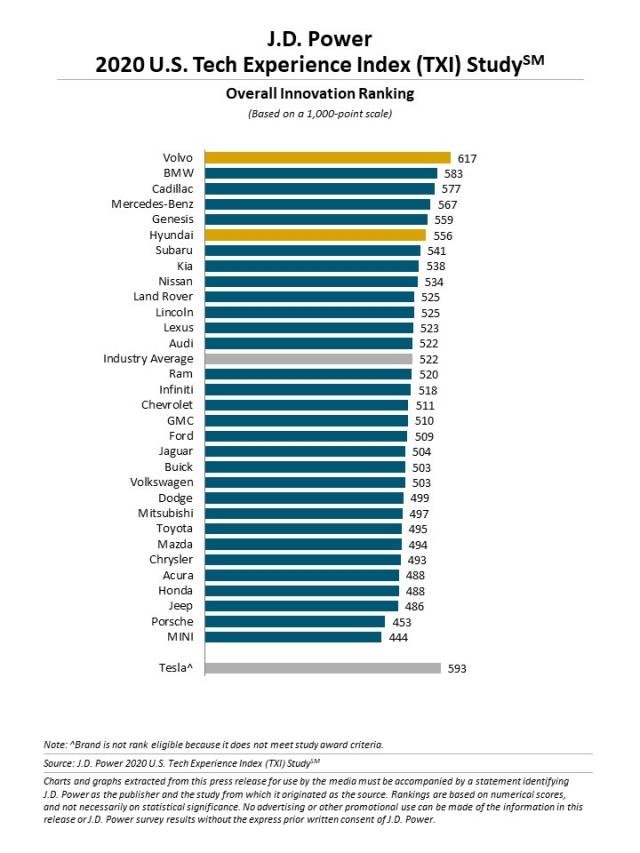Volvo
Ranks Highest For Tech Innovation Among Consumers: Study
Hyundai
takes the number one spot for mainstream brands.
J.D. Power
has been keeping itself busy lately pumping out studies that bring to light
what customers appreciate and what they don’t about their cars. Following
recent analysis regarding brand loyalty and initial quality, the data analytics
and consumer intelligence company has issued a new study. It’s called the 2020
U.S. Tech Experience Index (TXI) and shows how car companies perform when it
comes down to bringing new technology to the market.
This is
actually the fifth edition of the study and combines the level of adoption of
new tech with how good (or bad) it’s implemented. Volvo claimed
the overall number one spot with an index score of 617, followed by BMW (583)
and Cadillac (577). As far as mainstream brands are concerned, the title goes
to Hyundai with 556, enough to allow the South Korean brand earn the sixth spot
overall. At the other end of the spectrum, Mini was dead last with an index
score of 444, with Porsche right behind after scoring only 453.
As far as
Tesla is concerned, J.D. Power gave it an index score of 593,
but the EV marque isn’t officially ranked because it does not fully meet the
ranking criteria. Why? As with other recent studies, Tesla does not allow J.D.
Power to survey owners in 15 states, so the index score is based on surveys
from owners in the other 35 states. The projected score of 593 means it would
grab the second spot, after Volvo.
One of the
key findings of the 2020 U.S. Tech Experience Index study is the consumer’s
appreciation for rearview cameras and other types of cameras that provide an
extra set of eyes. Unsurprisingly, people don’t seem to like gesture controls
and owners have experienced a high rate of problems with this function – 36
issues per 100 vehicles.
Here Are
Other J.D. Power Studies:
When it
comes to semi-autonomous driving systems, drivers are having mixed feelings.
While some car owners appreciate them for taking some of the stress out, others
are having a hard time trusting the onboard systems. J.D. Power argues drivers
should receive proper training regarding how lane-keeping assist and other
similar systems work in order to increase the chances of a wider adoption of
these automated technologies

Commentaires
Enregistrer un commentaire